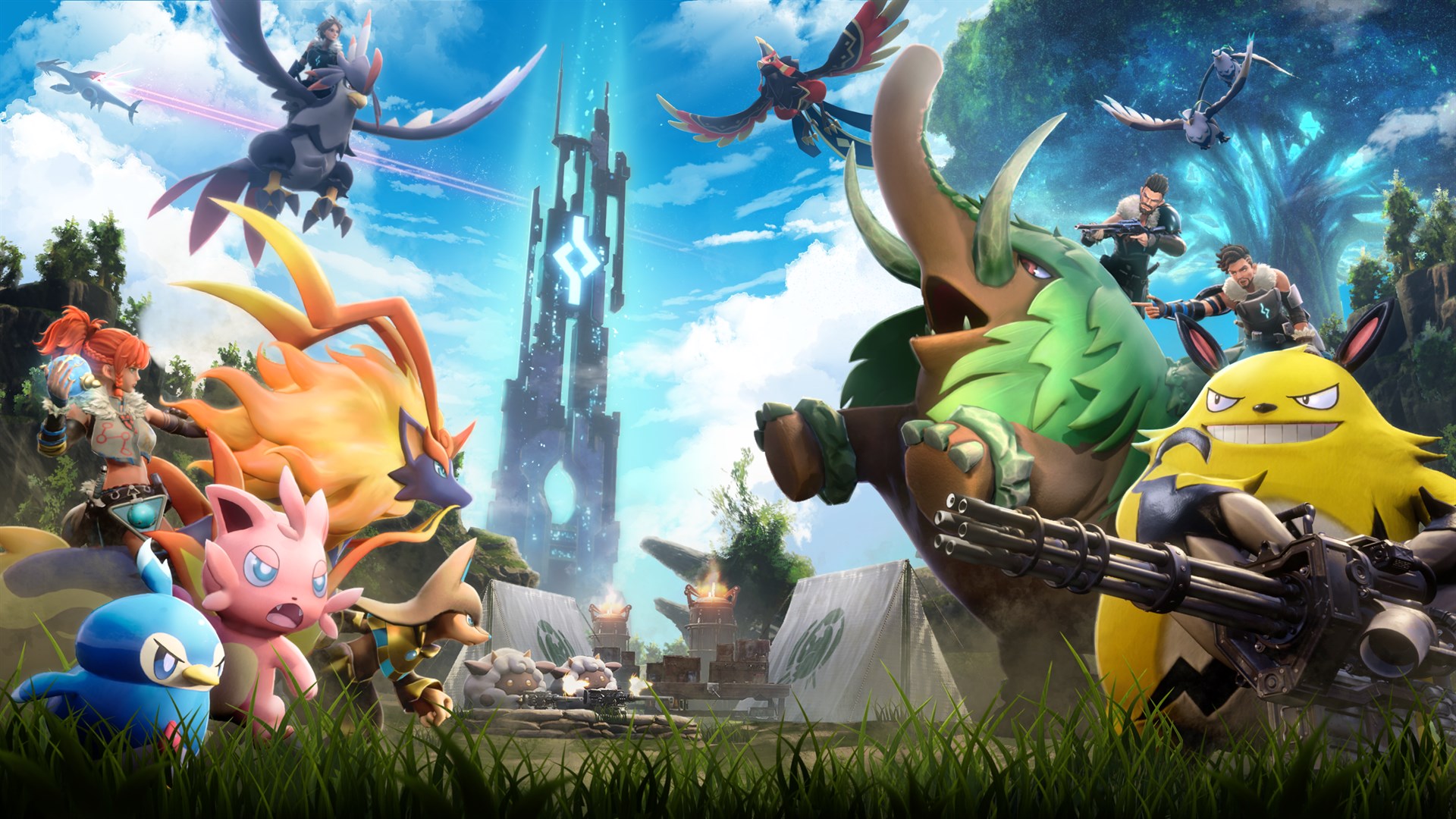Why Nintendo Never Sued Palworld: 'Pokémon with Guns' Controversy
Last Updated: October 21, 2025

When Pocketpair's Palworld exploded onto the gaming scene in early 2024, its blend of monster-catching, survival-crafting, and third-person shooting earned it the immediate moniker "Pokémon with Guns." The staggering initial success was matched only by the intensity of the online debate: the "Pals" bore a striking resemblance to Pokémon, and the internet held its breath, waiting for the inevitable legal hammer to fall from Nintendo and The Pokémon Company. Yet, the blockbuster lawsuit many predicted never came.
This analysis unpacks the complex legal reality behind the Palworld phenomenon, exploring why a lawsuit hasn't materialized and dissecting the arguments that would have defined such a landmark case—including the fascinating, and often misunderstood, role that game mods and genre tropes could play.
The Official Stance: A Promise to Investigate
In the weeks following Palworld's record-shattering launch, the discourse reached a fever pitch. The Pokémon Company was the first to break its silence. On January 25, 2024, it released a carefully worded statement confirming it had received many inquiries regarding "another company's game." While never mentioning Palworld by name, the company stated, "We intend to investigate and take appropriate measures to address any acts that infringe on intellectual property rights related to the Pokémon."
Shortly after, Nintendo president Shuntaro Furukawa echoed this sentiment, confirming during an investor Q&A that the company would "take appropriate action against those that infringe our intellectual property rights."
These statements were a clear warning shot but stopped short of declaring open legal war. The "investigation" has, to public knowledge, not yet escalated into a formal lawsuit against Pocketpair for the core game itself. The only direct legal action taken was swift and decisive action against a user-created mod that imported actual Pokémon models into Palworld—a clear-cut case of copyright infringement that Nintendo’s legal teams shut down immediately. This highlighted a critical distinction: Nintendo will aggressively defend the direct use of its assets, but challenging a game's inspiration is a much more difficult battle.
The Legal Hurdles: Why "Looks Like" Isn't Enough
A potential lawsuit would primarily revolve around copyright law, specifically the concept of "substantial similarity." To win, Nintendo or The Pokémon Company would have to prove that Palworld's character designs are not just inspired by Pokémon but are, in fact, illegal copies. This is a notoriously high bar to clear.
Copyright protects the specific expression of an idea, not the idea itself. The idea of "a small, yellow, electric rodent" isn't copyrightable. The specific expression—with the exact cheek spots, tail shape, and ear design of Pikachu—is. Pocketpair's developers appear to have meticulously studied this legal line. While many Pals evoke the feeling or archetype of specific Pokémon, their models, proportions, and details are different upon closer inspection. A court would have to compare each Pal to its alleged Pokémon counterpart, and if the designs are not direct copies, an infringement claim becomes incredibly challenging to prove.
Furthermore, game mechanics themselves are generally not protected by copyright. The loop of exploring, weakening a monster, capturing it in a sphere, and having it fight alongside you is a genre convention, not a legally protected concept owned by Pokémon.
A Hypothetical Defense: The Role of Genre Tropes and Fan Mods
Had this dispute gone to court, one of the most interesting arguments would have centered on the vast landscape of monster-catching games and fan creations. While the original speculative discussion incorrectly framed this under the patent law term "prior art," the underlying principle is relevant to copyright.
In a copyright case, a defendant like Pocketpair could argue that the design elements in question are not unique to Pokémon but are part of the scènes à faire (French for "scenes that must be done") of the monster-catching genre. They could present evidence of countless other games, anime, and even fan-made "Fakemon" from communities like DeviantArt to demonstrate that elements like elemental typings, evolutionary stages, and certain creature archetypes are common, unprotectable tropes.
This is where game mods could have entered the legal fray. A defense team could point to the decades-long history of Pokémon mods—from ROM hacks creating entirely new creatures to fan games with unique rosters—as evidence of a broad, publicly understood "language" of monster design. The argument would not be that a mod is "prior art" that invalidates a copyright, but rather that its existence shows that certain design ideas are so common and widespread within the fan community and genre that they lack the originality required for copyright protection in a new context.
This strategy would aim to dilute the perceived uniqueness of Pokémon's designs, framing them as one pillar of a much larger, creatively diverse genre. It would force a court to decide where the line between Nintendo's protected expression and common genre convention truly lies.
The Final Verdict: A Calculated Risk
The lack of a lawsuit against Palworld is not a sign of weakness from Nintendo but rather a calculated legal and business decision. The case is far from a slam dunk; it would be expensive, time-consuming, and carry the risk of an embarrassing loss that could set a negative precedent for protecting its IP in the future. The public relations battle would also be fierce, potentially casting Nintendo as a bully trying to crush a popular indie developer.
For now, Palworld continues its successful run, existing in a legally ambiguous but tenable space. It serves as a masterclass in sailing as close to the wind as possible without capsizing. While Nintendo's legal teams remain ever-watchful, the "Pokémon with Guns" controversy has become a fascinating case study in the limits of intellectual property law and the powerful influence of genre, inspiration, and the fine line that separates homage from infringement.